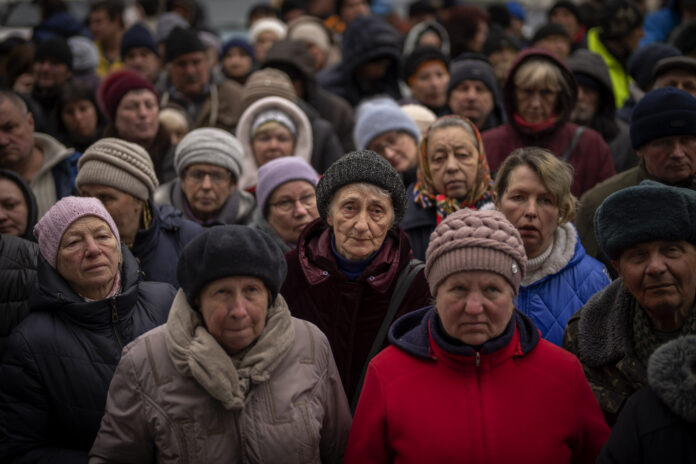Humanitarian ceasefires between Ukrainian and Russian forces in Ukraine are not on the horizon right now, but may be possible in a couple of weeks, the UN aid chief said on Monday.
Martin Griffiths made the comments in a briefing to reporters at UN headquarters in New York on his attempts to arrange local ceasefires in Ukraine so that desperate civilians could be evacuated from embattled areas and to provide badly needed assistance.
Moscow’s invasion, the biggest attack on a European state since 1945, has killed or wounded thousands. More than seven million people are estimated to be internally displaced in Ukraine and need help urgently, according to the International Rescue Committee.
Griffiths met senior officials in Moscow and Kyiv this month to discuss UN “aspirations” for humanitarian ceasefires and ways to improve a system to notify the sides of evacuation and humanitarian supply movements.
“Obviously, we have not yet got a humanitarian ceasefire in place on the Russian side,” he said. “I went into a lot of details on this and they continued to promise to get back to me on the details of those proposals.”
Trending Stories
Ukraine’s Zelenskyy condemns Russian attacks on Mariupol as bodies line the streets
Apple adds pregnant man and gender-neutral emojis to iPhones
“Right now, if I could speak for the Russian authorities, they are not putting local ceasefires at the top of their agenda,” he said. “Ceasefires are not on the horizon right now. They may be in a couple of weeks. They may be a bit longer than that.”
Ukraine has completed questionnaire for EU membership, official says
Griffiths said he would travel to Turkey this week to discuss with President Recep Tayyip Erdogan and other officials the prospects of hosting humanitarian talks between Ukraine and Russia.
“Turkey has been able to present itself to both sides as a genuinely valuable and useful host for those talks,” he said.
UN aid officials are planning to dispatch a humanitarian convoy in the next couple of days into the eastern Donetsk region, where Russia-backed separatists declared a republic, and from there aid supplies would go to Luhansk, another separatist region, he said.
© 2022 Reuters



